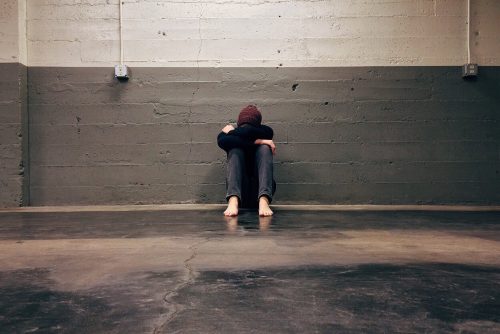When faced with adversity or internal struggles, people fall into self-destruction because they see it as a coping mechanism. It provides them temporary relief but can have lasting adverse effects on their physical, mental, and emotional health. In unfortunate situations, they may even lead to death if not addressed sooner. Therapists have not yet delivered concrete evidence that a mentally and emotionally healthy person is guaranteed to be free of such self-sabotaging behavior.
Hidden in our everyday routine, we must examine ourselves and others for any bad habits before the situation becomes irreversible.
According to Brooke Wachtler, PsyD, “There are four patterns of thinking that spark inner distress: rigid demands, catastrophizing, frustration intolerance, and something she calls “self-downing.”

Manifestations of Self-Destructive Habits
As the name suggests, these are unhealthy behavior designed to harm oneself intentionally or subconsciously. Harmful coping mechanisms may make people feel better, allow them to be numb, or mask their feelings. Other people give in to such behaviors because they want to feel in control over some aspect of their lives. For example, a person who has no control over their spouse’s actions can choose to drink alcohol as an act of defiance.
Self-destructive behavior physically manifests itself in a person’s actions. Some of these behaviors are heavy alcohol or drug abuse, binge-eating, intentional starving, excessive gambling, and cigarette smoking. Among emotionally disturbed patients, self-harm or cutting oneself is also a sign. In this day and age, little do we know that addictive computer gaming is also a self-sabotaging habit among the youth.
On the other hand, some telltales are harder to find because they exist in the recesses of a person’s subconscious mind. Not only can a self-destructive person harm themselves, but they can also hamper social relationships. These habits are harder to identify at first, but after some time, they start to manifest in physical attributes. These bad behaviors are self-pity, self-sabotage, and social isolation.

Ashley Thorn, LMFT, said “Self-care is doing healthy things, in any aspect of your life, that ‘fill your cup.’”
A person wallowing in self-pity tells themselves they are unworthy. They use this to shy away from responsibility and personal growth. Meanwhile, people who are prone to self-sabotage are eternal pessimists. This type sets themselves up for failure before even trying, for they find the opportunity to have no purpose. Lastly, self-destructive people may have the habit of isolating themselves from family and friends. They think they are undeserving of such relationships and consider themselves a burden.
How To Get Rid Of Self-Destructive Habits
Many self-destructive behaviors began as a short-term activity for pleasure. To some extent, people who practice self-destructive behaviors are aware of their abusive tendencies. However, they refuse to stop or change their predicament. Before situations escalate, the best way to get rid of self-destructive habits is through early identification, intervention, and treatment.
Getting rid of these tendencies does not happen overnight. The process takes time and commitment to developing healthier habits. We will be sharing some tips from actual people who suffered from their abuse.
Cathy Malchiodi PhD, LPCC, LPAT, ATR-BC, REAT said “Self-expression is key to recovery from life’s atrocities; it’s the best revenge.”
- Take responsibility for your actions. Self-destructive people must be able to accept they have harmful tendencies and acknowledge the need to change. Most of them are in denial, and acceptance is, by far, the most challenging thing to do.
- Identify triggers. Trace back to the root of the problem. Only you can accurately identify stressors and trigger points. From here, you can decide which triggers to avoid and which habits are healthier to practice instead. For example, your demanding job triggers unhealthy stress-eating. Instead of binging on junk, you can channel your energy toward something healthier like exercise.
- Make mindful decisions. Sometimes, however, we cannot evade the trigger point; instead, we can practice mindfulness in controlling how we react to these situations. You must develop the mindset that you can stress-eat, but you choose not to fall back into the unhealthy habit. This action takes a lot of self-control and practice.
- Do not give in to negative self-talk. When you are in a self-destructive rut, it comes with a lack of self-confidence but coupled with self-hatred. Therefore, people need to have faith in themselves again. A simple step towards building self-confidence is to forgive yourself and zone out of those toxic thoughts. Start looking for more positive mantras.

- Ask for help. Recovering from a destructive path is challenging when done alone. With the support of friends and family, you will receive guidance and positive affirmation on your journey. If you feel like you would need reinforcements, finding a therapist will also empower you to choose a healthier lifestyle. One of the best ways to gain professional help is through online therapy apps like BetterHelp. To know more about the benefits of online counseling, you can visit this review from Indeed.
Little by little, we can counter self-destructive habits no matter how big or small they may seem. We need to examine our activities and thoughts where self-destructive habits may lie. With acceptance, mindfulness, and commitment, we can build ourselves healthier and better lives.
